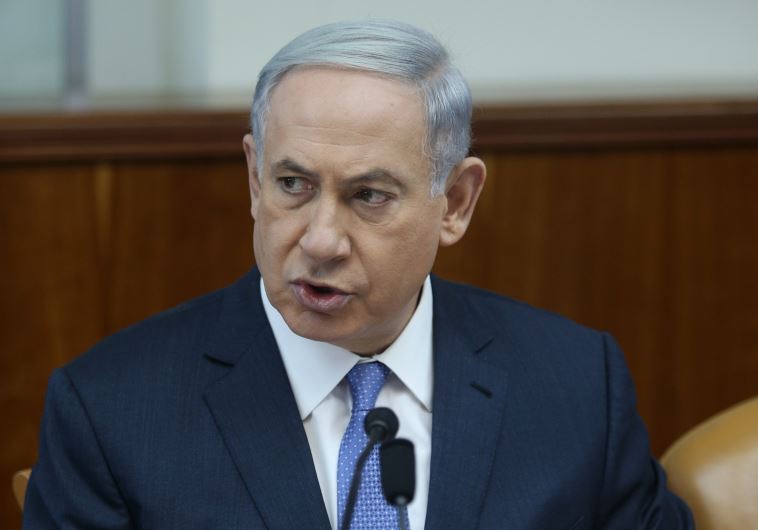Netanyahu announces ‘roundtable dialogue' between non-Orthodox and government
Natan Sharansky, Jewish Agency head, and dialogue chairman hails decision as way for non-Orthodox to advance projects and lobby for their interests.
 Prime Minister Benjamin Netanyahu at the weekly cabinet meeting on Sunday(photo credit: AMIT SHABAY/POOL)Updated:
Prime Minister Benjamin Netanyahu at the weekly cabinet meeting on Sunday(photo credit: AMIT SHABAY/POOL)Updated: